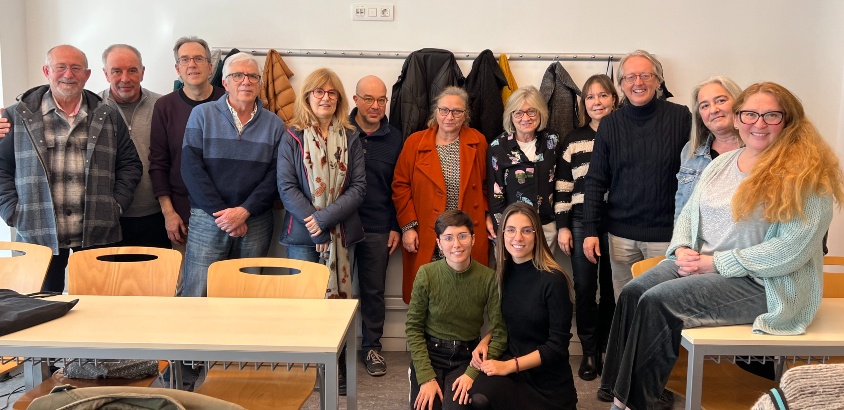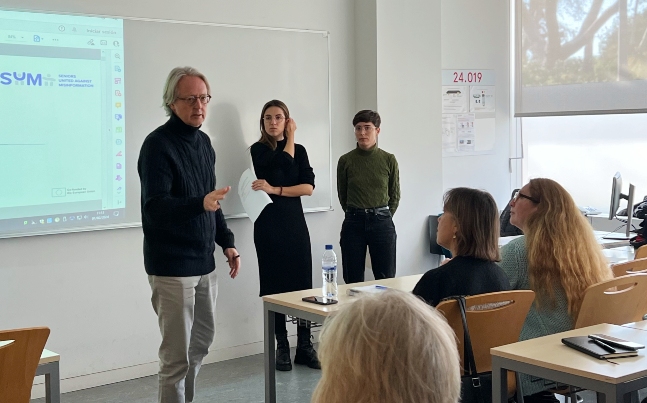Training seniors to detect fake news, an initiative of the FLECSLAB project by EUTOPIA at UPF
Training seniors to detect fake news, an initiative of the FLECSLAB project by EUTOPIA at UPF
Together with Verificat.cat, the goal is to train adults and the elderly who, in turn, will educate people of their generation in detecting fake news.

The FLECSLAB project by EUTOPIA held two new training sessions at Pompeu Fabra University on the 1st and 2nd of February. The alliance project aligns with the objectives of lifelong learning and was primarily intended for members of UPF Sènior. The workshop aimed to train seniors in detecting false information and fake news on the internet.

To achieve this, in addition to professors from the Communication Department responsible for the FLECSLAB project at UPF, journalists from Verificat.cat participated as trainers. The initiative is also part of the SUM project (Seniors United against Misinformation), which designs specific tools for adults and the elderly, as well as their environment, to help them regain confidence in the face of the excess of information found on the internet and social networks.
Beyond the ability to identify dubious or false claims on the internet, the idea of the training session is to educate seniors who, in turn, will educate people of their generation in detecting fake news. Therefore, after the training, those senior members who wish to do so can volunteer to train others in detecting fake news in community centers, public institutions…

Disinformation, mainly through messaging channels
The way seniors inform themselves differs significantly from how the younger population does, and consequently, so do the channels through which they receive disinformation. During the workshop, participants shared the ways in which they receive these types of messages. It is primarily through WhatsApp, where, in addition to fake news, they receive phishing messages (a fraudulent technique that uses deception to obtain confidential information, such as passwords or financial data, by posing as a trusted source).
